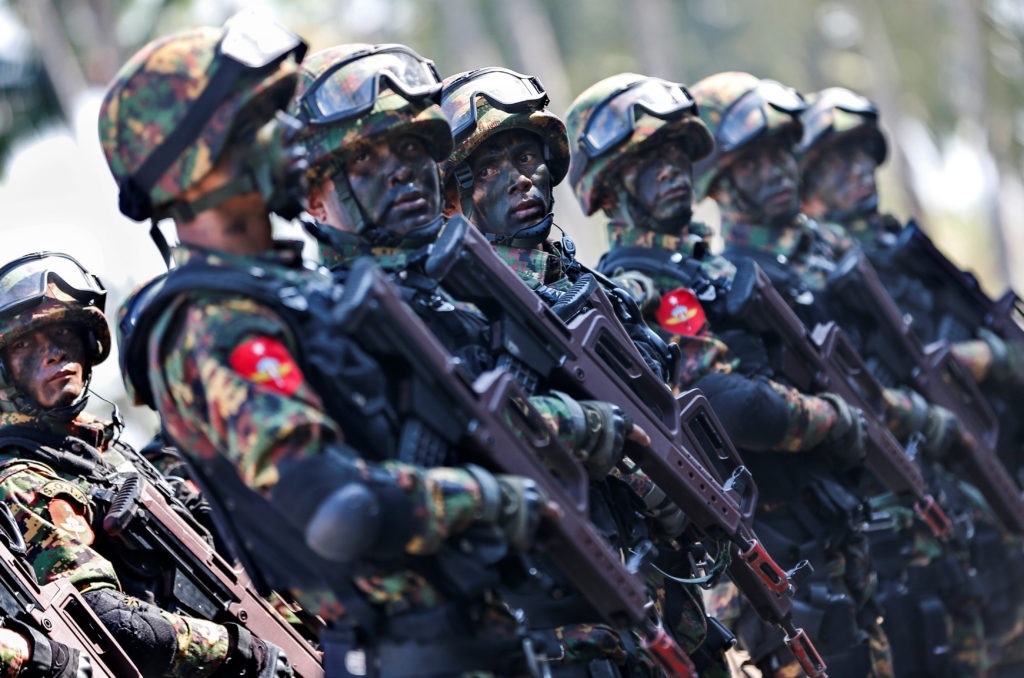Myanmar’s military junta announced a rare battlefield success on Thursday, stating it has recaptured the northeastern town of Nawnghkio from ethnic rebels after nearly a year of intense fighting.
The development marks a significant reversal for the regime in Shan State, where it has faced persistent resistance from well-organized armed groups.
According to the military government, Nawnghkio had been under the control of the Ta’ang National Liberation Army (TNLA), an ethnic armed group and member of the Three Brotherhood Alliance, since July 2024.
The town is considered a strategic hub due to its location on a vital highway connecting central Myanmar to the Chinese border.
The announcement was made through the state-run newspaper Global New Light of Myanmar, which detailed the military’s long and grueling campaign to retake the town.
Over the course of 11 months, the military claims to have engaged in 566 separate clashes with rebel forces.
A rare full-page spread featured images of government troops raising rifles in celebration following what the military described as a decisive victory.
The report acknowledged the high cost of the operation, noting that both officers and rank-and-file soldiers “sacrificed their lives” in the early stages of the conflict.
However, it credited a combination of ground assaults and air support with turning the tide in favor of government forces.
By Wednesday, the statement claimed, “the entire Nawnghkio area” had been brought back under military control.
Nawnghkio lies approximately 40 kilometers (25 miles) from Pyin Oo Lwin, home to the nation’s principal military training academy.
It is also about 80 kilometers (50 miles) from Mandalay, Myanmar’s second-largest city.
Its strategic position made it a critical target for both the military and rebel factions.
The TNLA, in its own statement, did not confirm losing control of the town.
Instead, the group acknowledged difficulties in maintaining administrative operations due to the military’s heavy offensive and said it had relocated its civil administration to safer locations.
The rebel army stopped short of conceding defeat, indicating that the situation on the ground remains complex.
The battle for Nawnghkio comes amid a broader and intensifying conflict between Myanmar’s military and a growing alliance of resistance forces.
The Three Brotherhood Alliance, which includes the TNLA, the Myanmar National Democratic Alliance Army (MNDAA), and the Arakan Army, has been waging a coordinated campaign against the junta since late 2023.
These groups, long engaged in struggles for greater autonomy, have found renewed purpose and coordination following the 2021 coup that ousted civilian leader Aung San Suu Kyi.
Since the coup, Myanmar has spiraled into a full-blown civil war.
Ethnic armed organizations have joined forces with pro-democracy militias like the People’s Defense Force (PDF), an umbrella resistance group that emerged in opposition to military rule.
The combined forces have inflicted substantial territorial and personnel losses on the regime, particularly in remote and border areas.
Despite these setbacks, analysts note that the military still holds significant advantages, most notably, control over major cities and air superiority.
This airpower has been a decisive factor in repelling large-scale rebel advances and maintaining control over strategic urban centers.
The town of Lashio, also in northeastern Shan State, had previously fallen to rebel forces before being returned to government control in April through a deal brokered by neighboring China.
The diplomatic involvement highlights the regional stakes in Myanmar’s conflict and Beijing’s interest in preserving stability along its border.
As fighting continues across multiple fronts, the military’s recapture of Nawnghkio represents a symbolic, if limited, victory.
However, it is unlikely to significantly alter the broader dynamics of Myanmar’s civil conflict, which shows no signs of de-escalating.
While the junta touts this as a major breakthrough, the resilience and adaptability of rebel forces, combined with ongoing support from local populations and external sympathizers, suggest that Myanmar’s deepening crisis will persist.
The battle for control—both military and moral, remains fiercely contested.



